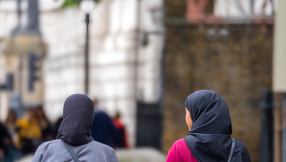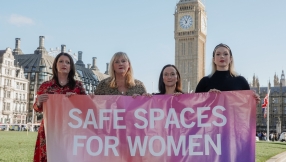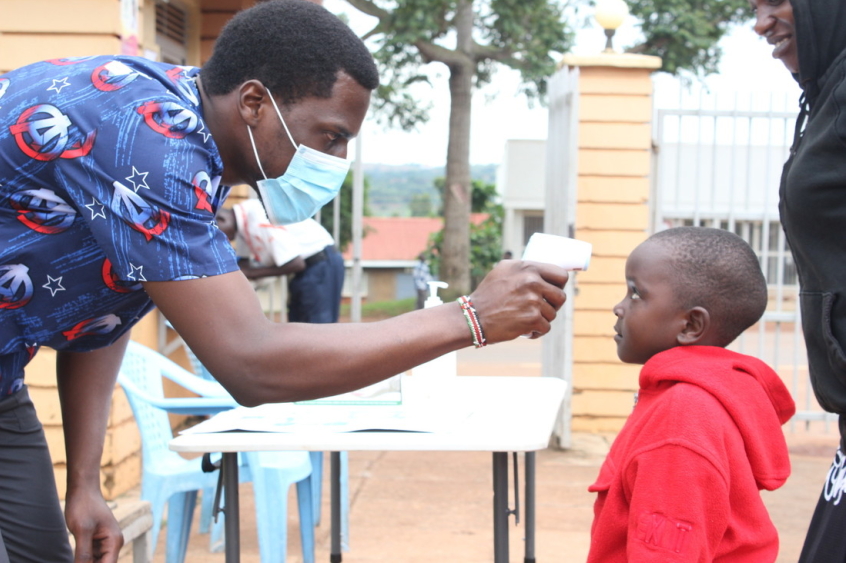
It is not often that the world is united in a health crisis, but coronavirus has done just that. Yet it is already becoming apparent that personal experience of the pandemic will vary greatly depending on factors like where people live and their economic status.
There are fears that the impact on developing countries with few resources and little in the way of healthcare or welfare will be devastating, and for those living with disability, even more so.
Kirsty Smith, Chief Executive of Christian Blind Mission, speaks to Christian Today about the impact of coronavirus on disabled communities across developing countries in Asia and Africa, and the struggle to continue supporting them through the pandemic.
CT: How much of a threat is coronavirus to the communities where you work?
Kirsty: For people in very poor environments, the pandemic is a very different experience. One of the things we've been able to do in the UK is to introduce social distancing, which has been one of the most effective ways of reducing the spread. In many of the places where CBM works, people live in large families, it's very difficult to keep the numbers in any one place down, and they may also be living in slum areas where housing is very poor and very close together, so there just isn't the luxury of staying two metres apart. Realistically, there's no chance of that.
In addition to that, many of the communities where we work do not have access to running water, and they certainly don't have access to soap. So again, one of the most effective ways of protecting against coronavirus that we've got here in the UK - washing our hands on a regular, almost slightly obsessive basis - is not an option in many of our communities.
Some of the primary healthcare facilities themselves don't even have those facilities. If you think about the problem we've had here in the UK getting PPE [personal protective equipment] to our frontline health workers, that problem is going to be exacerbated in countries that have significantly weaker health systems. They are unlikely to have the number of staff that they need to respond to this pandemic and they are unlikely to be able to pivot the staff that they do have.
While in the UK, many of the health staff have been moved away from things like podiatry and dentistry to frontline health roles, that's not so likely to happen in the countries where we are working. Staff there don't have the flexibility to travel to different places, or to work from home. Many of us have that flexibility in the UK but in developing countries, many are living in small, crowded places, and they may not have electricity or access to the internet in their homes, so we're talking about really challenging circumstances, only some of which CBM will be able to address.
CT: How are people with disability in particular being impacted?
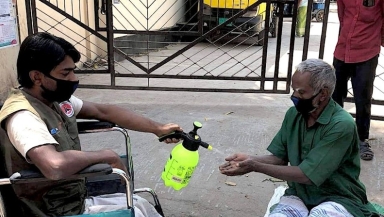
Kirsty: We are working particularly with some of the most vulnerable groups in society, and we know at times of humanitarian crises that people with disabilities are more significantly impacted because they are often excluded from development response. In effect, that means that the decision makers don't recognise the need to include them and therefore don't build into their approaches ways to ensure that people with disability are included.
If you put out important messaging about behaviour change, for example, quite often that is sent out as leaflets or posters or pamphlets. So people who are shortsighted or blind will not receive that messaging. Similarly, people who are deaf cannot hear radio announcements or TV adverts. So one of the things that's really important for CBM is to adapt communications to a variety of formats so that people with disabilities are able to access the same life-saving information as others and use that to protect themselves.
CT: What would your message be to the key policy and decision makers?
Kirsty: One of the best things they can do is actually ask people with disabilities themselves to be involved in decision-making around the response. People with disabilities will be able to offer contextualised expertise - they understand what they need.
CBM has been involved in responses to many, many humanitarian crises and we always partner with the disability movement in the country where these crises have occurred because they will often already have systems set up to communicate with each other. A good example of that was in the 2015 Nepalese earthquake, when the country's National Federation for the Deaf was able to very quickly reach all of the deaf people in its network after the earthquake to check on their safety because they had an SMS messaging approach already set up. It was something the government just hadn't thought of.
So I would definitely recommend working closely with the disability movement and partnering with organisations like CBM who are able to bring a disability lens to the more generalist humanitarian response.
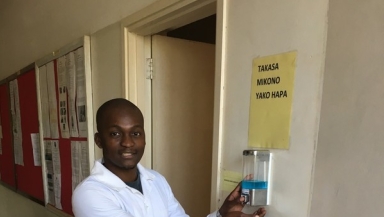
CT: Would it be fair to say that there are not many services for disabled people in developing countries in the first place, and that what services there are are going to be drastically scaled back because of the pandemic?
Kirsty: That's absolutely right. We have several programmes funded by the Department for International Development and other UK funders, but we are having to put these projects on hold because much of our work relies on us being able to communicate at community level and if you can't hold the meetings you need to hold or gather people together to raise awareness or run training, then it's very difficult to do that community messaging.
So a lot of the projects that we would normally be working on, like inclusive eye health, the prevention of violence against women with disabilities, or building up primary and secondary health facilities, for example, we're just not able to do any of those at the moment because either the health facilities are re-directing their efforts towards corona response or the staff themselves are ill.
This is further exacerbated by the fact that people with disabilities often have additional health needs so it's not only that the services are weak in the first place, but that what services there are are often not adapted to people with disabilities.
For example, a wheelchair user may turn up for an eye health examination and find that there's no ramp to enable them to get into the building, or that their wheelchair doesn't fit under the slit lamp, which is the bright light that doctors use to look into a patient's eyes.
So there's a problem with access in the first place for people with disability, coupled with their increased health need. They are essentially being doubly disadvantaged because they are not able to access the existing health facilities.
That also includes people who have mental health conditions, and times of trauma will exacerbate existing mental health conditions. Yet their access to treatment is probably reduced if health efforts are being redirected to corona.
CT: It must be really hard for the hospitals?
Kirsty: Yes, it's very hard. CBM works with a lot of partner hospitals and one of the best things we can do at the moment is ensure that they have access to the protective equipment they need to protect the staff and the patients, and to try to ensure that they have access to basic essentials like sanitiser and face masks.
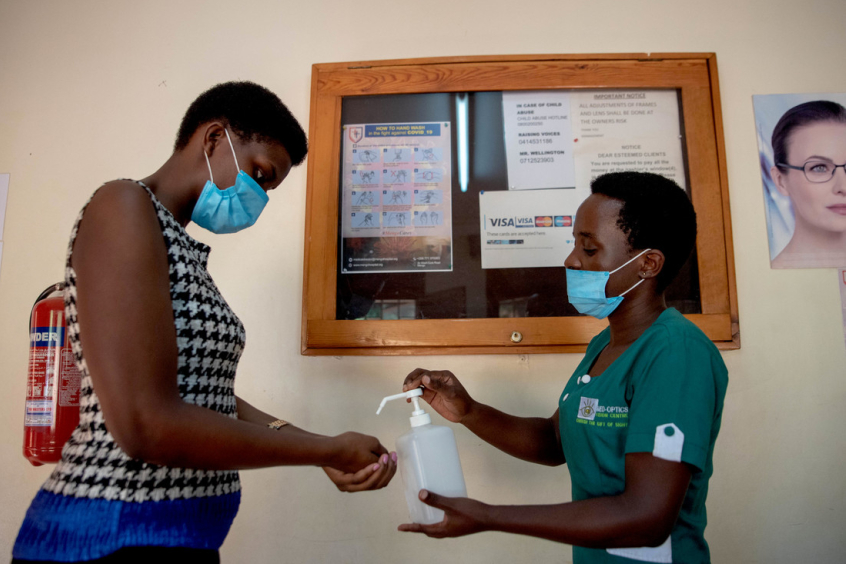
CT: CBM was involved when Ebola broke out in Africa. Have any lessons been gleaned from that experience that can be applied to this pandemic now?
Kirsty: Definitely. Ebola was equally contagious but had a much higher death toll than corona but we have learnt really valuable lessons from that in terms of how to bring about behaviour change in communities that are often steeped in tradition and where people, understandably, are not always convinced by new approaches or outsiders coming in. One of the things we learnt from the Ebola epidemic was the importance of local people and the trust that can be built up if they are the ones carrying the messages.
CT: For a person in a developing country with a disability, day to day life is already really tough. Now with coronavirus spreading, how much harder is it going to be for someone with a disability?
Kirsty: Really, really hard partly because they typically have to work on a daily basis in order to have enough money that evening to feed the family. They can't just sit at home for three months waiting for lockdown to finish. And faced with the prospect of starving or catching corona, many will say, no I have to go to work, I have no choice because I have to eat.
That is why where there has been any problem with the funding we've received in the UK, we have tried to make sure that we don't negatively impact our partners in the countries they are in. We are trying very hard, as much as we possibly can, to retain the staff that we employ, even if we can't currently work directly on the project that they were employed to carry out.
CT: How have you had to adapt your work in light of the pandemic?
Kirsty: In Nigeria, we have been providing sign language interpretation for vital health messages and updates, and working with disabled people's organisations and the media to make sure that people with sight and hearing impairments can receive that messaging.
In Bangladesh, we have been adapting the existing programme that we had to make sure that disability inclusive materials with life-saving information have been circulated to communities and health workers, and that there is appropriate PPE provided for health staff.
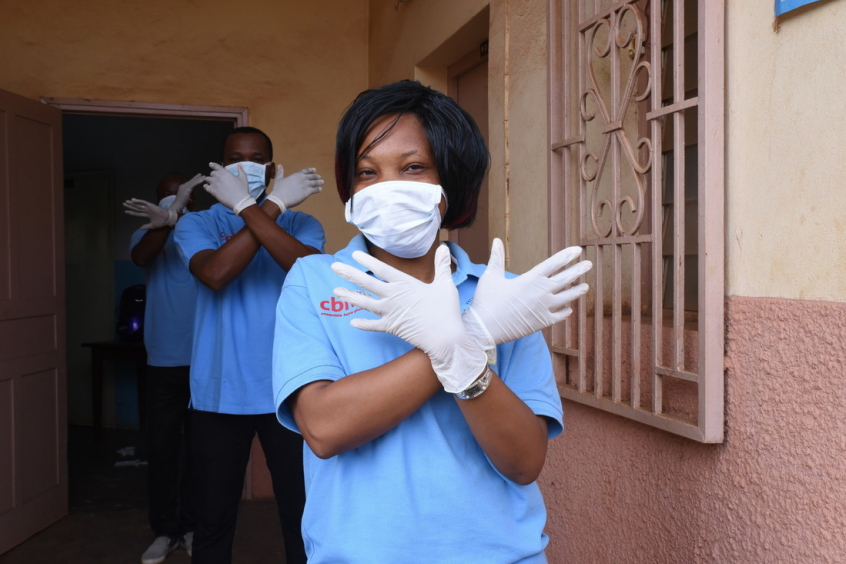
And we have been supporting local disabled people's organisations to help play a role in the government's decision-making to ensure that they're taking people with disabilities into account in areas like the allocation of funding or travel restrictions.
Travel restrictions can hugely impact somebody who is dependent on a carer. That carer might be their way of getting out of bed, of accessing their food and any funding they're eligible for. So if that carer is not able to travel, it will make life very hard for their dependent.
Overall, we are working directly with decision makers and governments in the countries where we have our programmes to ensure that people with disabilities are not forgotten.
CT: Has the pandemic had an impact on your funding?
Kirsty: Yes and it's very difficult to know at this point how devastating that will be. [Global consultancy firm] McKinsey have done a study estimating that there will be a 50 per cent drop in disposable consumer spend over the next few months and we can reasonably expect that to be reflected in a correlating drop in our income. So it is a deeply distressing time for the aid sector.
Understandably, people in the UK have their own families to worry about and are having themselves to adapt to new ways of living and working. It's understandable that international development may not be the priority in their minds at the moment. And yet, if you just take a moment to think about the impact coronavirus has had here in the UK and imagine that to be devastatingly worse in the communities where CBM is working, then you will to some extent understand the challenge we are facing in Africa and Asia.
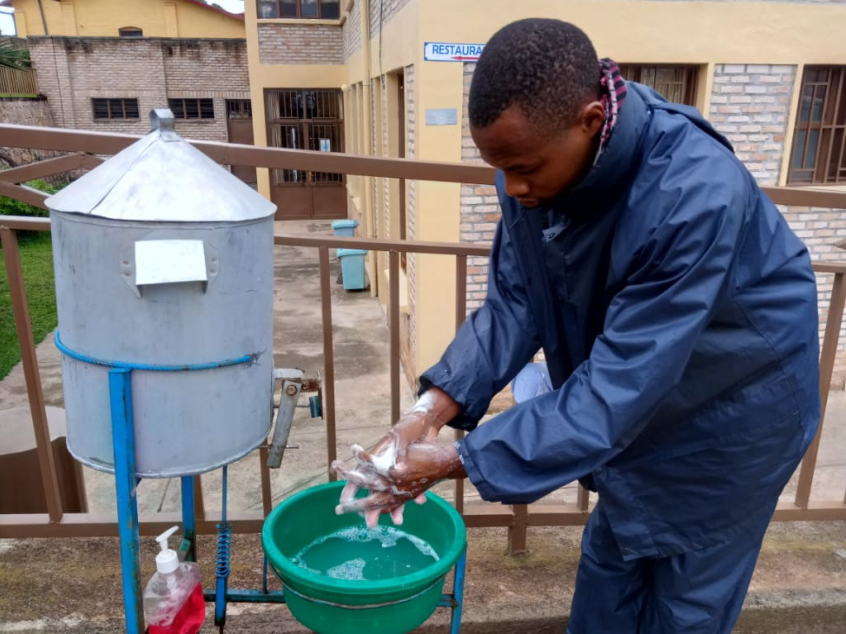
CT: You were running your See the Way fundraising appeal to extend eye care services in developing countries, and this was being match-funded by the UK Government. Has this campaign been affected?
Kirsty: Yes. It was so important for us to hit our target with that appeal, but there was a danger that it was going to be very significantly impacted by coronavirus so we decided to put it on hold because we want to take full advantage of the match-funding provided by the Government. The appeal was frozen on April 9 and we will re-launch it later in the year for its final five-week run so that we can maximise the potential of our aid match.
CT: What would you like people to pray for when it comes to your work and the communities you are working in?
Kirsty: Please pray for our partner staff, the health and community workers who are at the frontline in some of the African and Asian contexts where we work; for the people with disability who are facing fearful and challenging times; for the staff in the CBM office in the UK who are desperately trying to fulfil the mission of the organisation without having access to the information and the resources that they need; and lastly for CBM supporters who are so loyal and dedicated, and still want to stay with CBM as part of our journey at a time when we have never needed them more.











